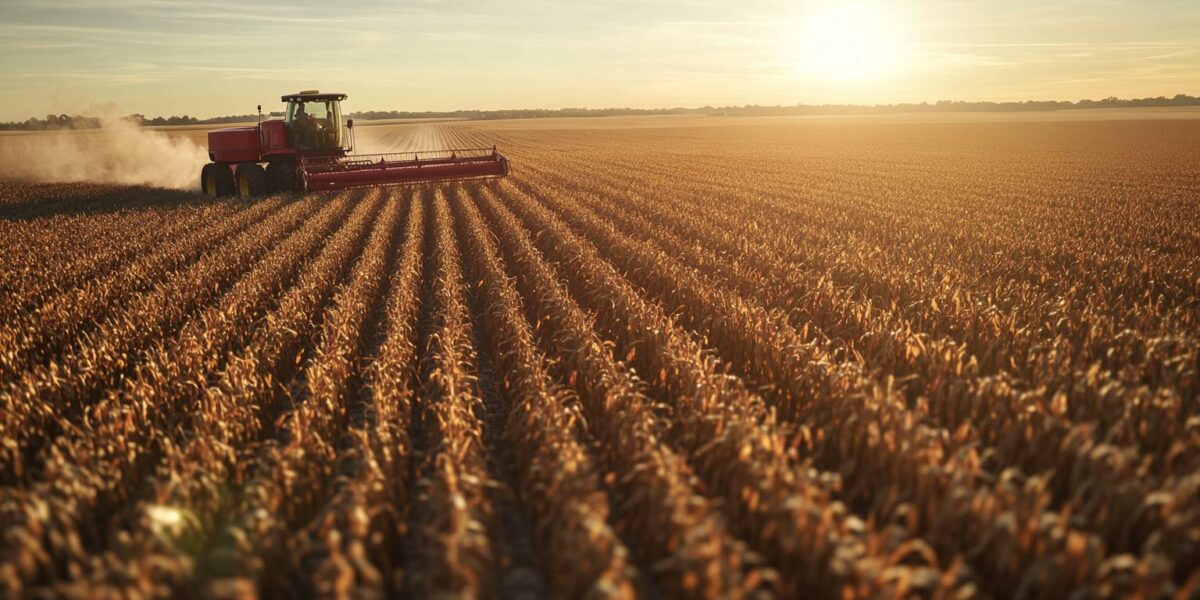The Dawn of Short Corn in the Midwest
Driving through the heartland of America, one expects to see fields of towering corn. However, this might soon change dramatically as shorter corn varieties take over. Farmers like Cameron Sorgenfrey are already witnessing this transformation, envisioning a landscape where corn won’t reach the skies but will still thrive robustly.
Innovative agricultural techniques are reshaping the countryside scenery. The introduction of Bayer Crop Science’s short corn offers a promise of resilience against increasingly frequent and powerful windstorms. These shorter, sturdier plants are designed to withstand winds up to 50 mph, a critical adaptation to the changing climate.
The benefits extend beyond mere resilience. Short corn allows for denser planting, meaning farmers can grow more on the same plot of land. This could lead to increased profits during periods of low crop prices, providing a much-needed economic boost to rural communities.
Moreover, shorter corn varieties require less water, addressing growing concerns about drought. This reduction in water usage is a crucial step towards sustainable farming practices, especially in arid regions.
Transforming Agriculture: The Role of Research
The push towards shorter corn is backed by extensive research. Dior Kelley from Iowa State University highlights the fundamental shift this change represents. With 90 million acres of corn grown annually in the U.S., the transition to shorter stalks could have profound implications on national agriculture.
Efforts to develop these resilient crops intensified after the devastating 2020 derecho, which caused $11 billion in damage. The storm’s impact on cornfields was particularly severe, prompting a surge in demand for innovative solutions from both private companies and academic institutions.
Researchers are now balancing the need for high yields with the necessity of creating plants that can endure extreme weather conditions. This has led to a focus on traits like drought tolerance and heat resistance, alongside the push for shorter stalks.
Some challenges remain, such as the potential for diseases or mold on cobs closer to the ground. However, the ongoing research aims to address these issues, ensuring that short corn becomes a reliable and sustainable option for farmers.
Advantages and Future Prospects
Short corn isn’t just about surviving storms; it’s also about improving farming efficiency:
- Shorter stalks make it easier for farmers to use equipment for tasks like spreading fungicide.
- Greater plant density can enhance overall crop yields.
- Reduced water usage supports sustainable farming practices.
Companies like Bayer have been at the forefront of developing these varieties for over 20 years. Other agribusiness giants, including Stine Seed and Corteva, have also invested in creating resilient short-corn strains.
The anticipation is that by 2027, short corn will be widely cultivated across the Midwest and beyond. This shift not only promises to bolster farmers’ resilience against climate change but also sets a new standard in agricultural practices for the future.
Bayer’s commitment to ramping up production by the end of the decade reflects the growing confidence in short corn’s potential. As farmers adapt to these new varieties, the landscape of American agriculture is set to evolve in ways that were once unimaginable.
The ultimate goal is to make short corn the new normal, providing a sustainable and resilient crop that can thrive in the face of an ever-changing climate.
Embracing Change: The Farmer’s Perspective
Farmers like Sorgenfrey see the adoption of short corn as a game-changer. Despite some skeptical looks from neighbors, the benefits are clear. The ability to withstand strong winds and grow in denser configurations makes short corn a valuable asset in modern farming.
For many, the shift to shorter corn varieties is a necessary adaptation. As weather patterns become more unpredictable, having a crop that can endure such conditions is vital. This transformation reflects a broader trend towards climate-resilient agriculture.
While there are concerns about potential vulnerabilities like lodging or disease, the overall advantages far outweigh these challenges. The ongoing research and development efforts are aimed at mitigating these risks, ensuring that short corn remains a robust option.
Ultimately, the rise of short corn symbolizes a significant evolution in farming practices. It represents a proactive approach to addressing climate change, ensuring that agriculture can remain sustainable and productive for years to come.



morgan1
Will these new corn varieties be more expensive for farmers to plant initially?
adriansolstice
Short corn? Sounds like a Napoleon complex for crops! 😂
theodore
Thanks for this insightful post! It’s amazing to see how innovation can help farmers adapt to climate change.
piper
Seems promising, but what about the increased risk of mold on the closer-to-ground cobs?
Leo
How does the yield of short corn compare to traditional tall corn?
harrisonwhispering
Wow, this is so cool! Can’t wait to see these short corn fields in person. 🌽